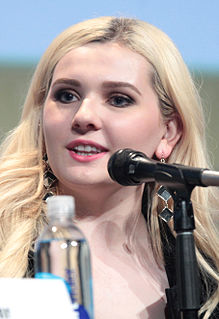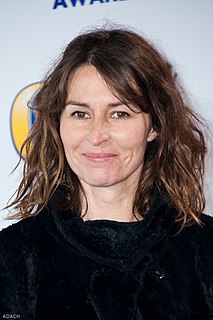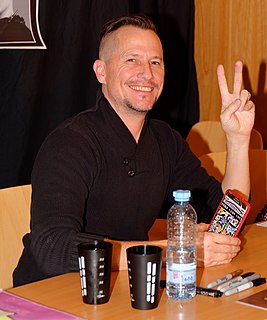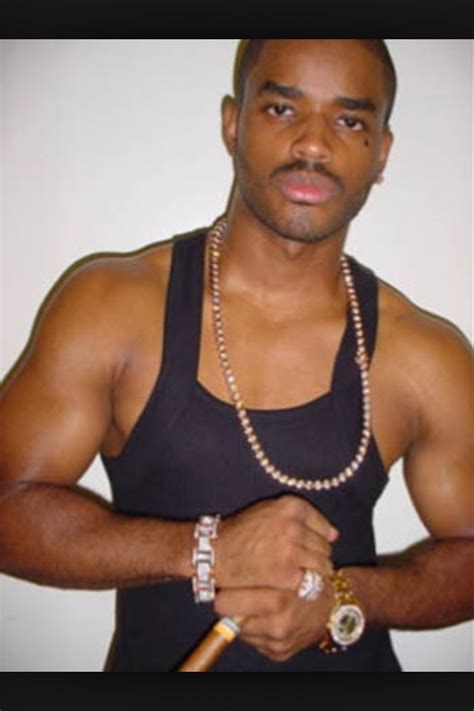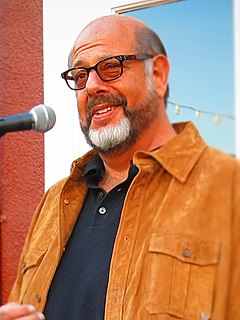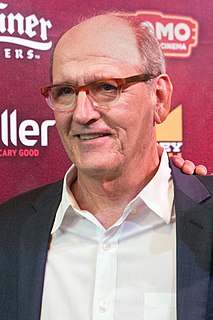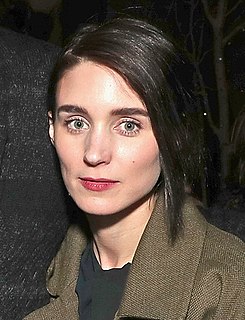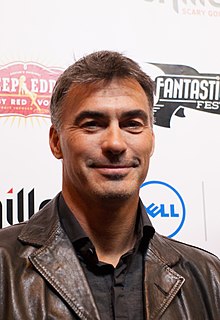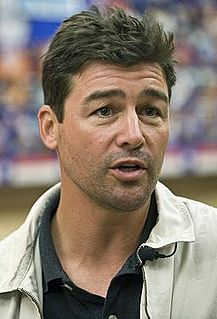A Quote by Saswata Chatterjee
I do not accept a character or a script that I do not like.
Related Quotes
When I'm writing, I try to have the mask of my character on as I'm walking through the world. When I'm not at my desk, the rest of the time, I try to stay in that character and see the world the way that character would It's almost like method acting in a way — keeping the character close the way the actor keeps a script close and always tries to be in character.
Most of the time when I receive a script, it says something like 'Rosenberg is the fat, slovenly Mayor, who doesn't want the kids to use the Skateboard Park,' or 'Stein is a pompous, rotund attorney, imposing to all.' It would be so freeing to get a script where my character is simply described as 'A Man.'
Most of the time when I receive a script, it says something like 'Rosenberg is the fat, slovenly Mayor, who doesn't want the kids to use the Skateboard Park', or 'Stein is a pompous, rotund attorney, imposing to all.' It would be so freeing to get a script where my character is simply described as 'A Man.'
I think what we want to do is - when we choreograph, when we design choreography, we try to take it from a character standpoint first. Obviously you write a script and it's like, a Jason Bourne or a John Wick or something like that, you don't start choreographing double twisting wire moves and backflips, or doing the splits. You try to keep it so it fits the character, or the tone of the film.

